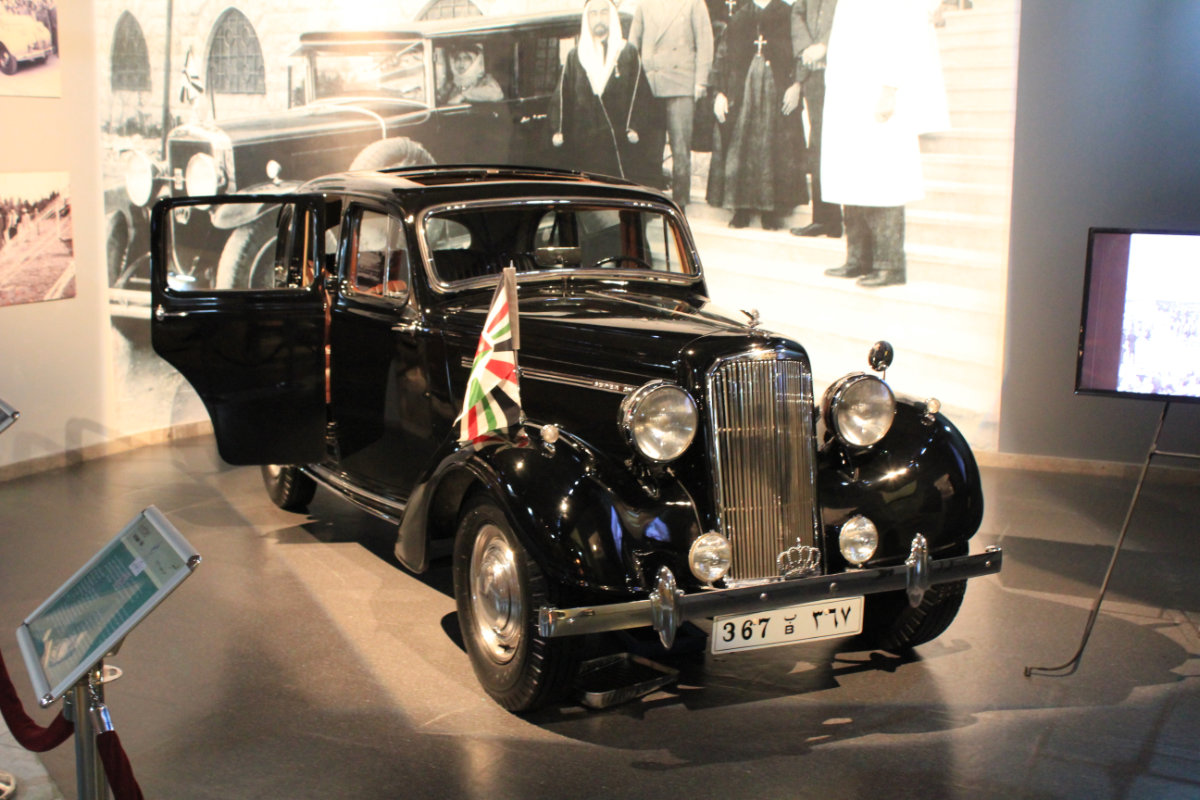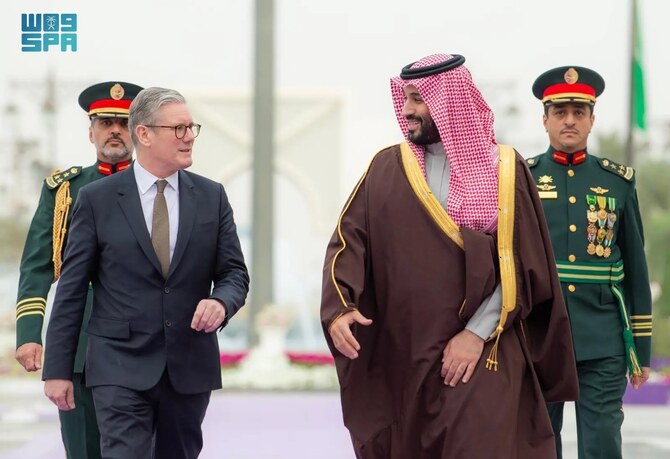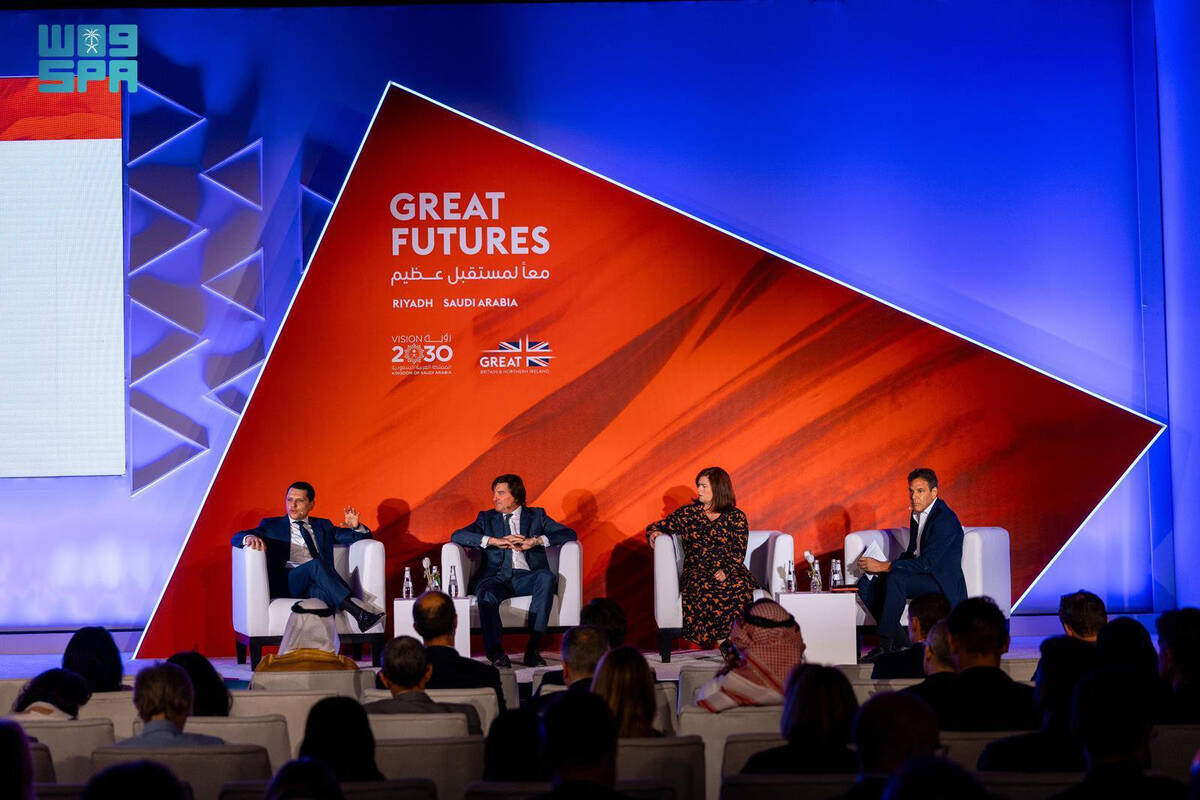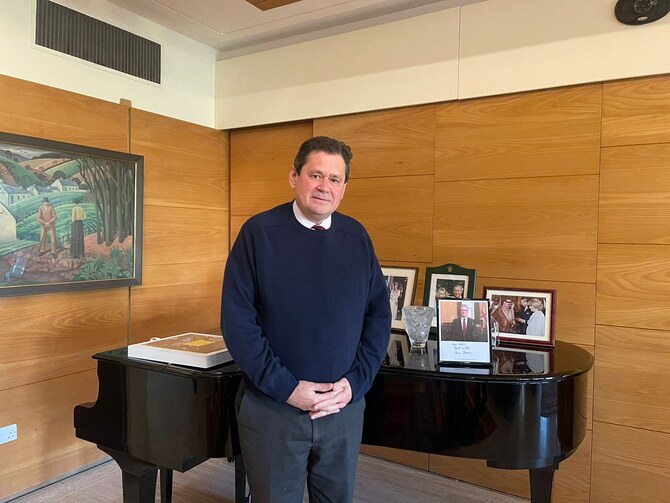DUBAI: Big changes under way in Saudi Arabia could turn the Kingdom into the top market in the Middle East for Rolls-Royce cars, Torsten Muller-Otvos, the elite motor company’s chief executive, told Arab News.
“Saudi obviously is a big market. I see even more potential to come from Saudi in the years to come because the market is currently also opening up and is growing,” said Muller-Otvos, citing the royal decree of 2017 that granted Saudi women the right to drive and obtain driving licences for the first time.
“We see now the first female drivers in our cars in Saudi and for that reason I foresee we might in a couple of years talk about this being a massive, great market. It might even one day be the number one market in the entire region. Who knows? Potential-wise, it’s possible, but it depends on some other aspects,” he added.
Muller-Otvos delivered his forecast on Frankly Speaking, the series of video interviews with thought leaders in the Middle East and the world.

Caption
In the interview, the boss of the British-designed but German-owned luxury car manufacturer set out Rolls-Royce’s road map to go completely electric, the effects of the COVID-19 pandemic on global and regional sales, and the effect of rising oil prices on elite car sales.
He also talked about some of the more extravagant custom features regional customers want on their cars.
The Rolls-Royce mark, founded in Britain 115 years ago but owned by BMW of Germany since 2003, is the ultimate status symbol in motoring, from California to Shanghai, but with a particular appeal among Arab buyers.
The transition currently under way in the global transportation market, with the surge in electric vehicle sales, has impacted Rolls-Royce and other petrol-engine manufacturers. Nevertheless, Muller-Otvos says Rolls-Royce is leading the way in electrification among the ultra-luxury market.

A vintage Rolls-Royce is shown during the exhibition in the King Abdullah II car museum in Amman, Jordan Feb. 18, 2016. (Shutterstock)
“I would even say we are front-runners,” he said. “I mean, we are not comparing ourselves with what I would call the ‘normal’ automotive business. We are high in luxury. And you might also know that we are the very, very first ones in the ‘ultra-high luxury’ segment worldwide.”
The first electric Rolls-Royce, the Specter, will be available in the Middle East from 2023. “I can tell you Spectre will be a stunning, remarkable Rolls-Royce,” Muller-Otvos said. “We also took our time because, first of all, it needs to be a Rolls-Royce, so that means no compromises around luxury experiences for our clients worldwide, and then second comes, obviously, electric.”
The Spectre — which motoring pundits expect will cost around $350,000 for a starter-level vehicle — will play to Rolls-Royce’s traditional strengths. “It is also silent. We are not defining ourselves with loud engine noises or exhaust noises and for that reason I think it’s a perfect fit for the brand,” he said.

Rolls-Royce has announced that its first electric car would be made available by 2023. (Supplied)
But there were also commercial and regulatory imperatives for Rolls to get into the electric market. “We also see, worldwide, certain regulations kicking in that might mean in a couple of years you can’t enter city centers any longer without driving electric. And that, of course, would not be great for the brand.”
Elon Musk’s Tesla has so far been the headline grabber in the move to electric vehicles. Now, many traditional car companies in all the big markets are jumping on the “EV” bandwagon. However, Muller-Otvos is confident Rolls-Royce has traditional strengths in the hotly competitive market.
“Rolls-Royce never defined itself purely by the engine. That is not us. That is for other brands. We defined ourselves as the ultimate in luxury. It is about the finest materials, the best craftsmanship. It takes 1,000 hours at least to build one of these beautiful masterpieces,” he said.

Muller-Otvos also believes the move toward electric vehicles fits the shifting demographic of the Rolls-Royce clientele. “I think we will see a trend, step-by-step. Particularly the younger ones are very much attracted to electric propulsion. What we have also learned is that once you’re in an electric car, you are probably not getting back into a combustion car,” he said.
In the past, Rolls-Royce customers were overwhelmingly male, successful business executives, celebrities, or even royalty. That profile is now changing.
“When I started — and I’ve been in the role now for nearly 12 years — the average age of a Rolls-Royce customer was around 56. We are now down to 43. We have massively refurbished the brand, reinvented the brand, rejuvenated the brand. We now have young clients all over the world,” he said.

In the Middle East in particular, more women want to drive a Rolls-Royce. “When I joined, (the client base) was 1 percent female worldwide. Now we are at around 15 percent worldwide, and I think there are more to come, particularly here in the Middle East. You see quite a lot of female drivers behind the wheel. I think in the Middle East, we are talking probably 20 percent or so, and that’s quite a good share,” he said.
A big earner for Rolls-Royce has long been the trend towards customization — what the manufacturer calls the “bespoke proces” — where wealthy customers pay extra for unique features in their cars.
Sometimes, this results in lurid color schemes and outlandish accessories that would horrify Rolls-Royce traditionalists. But Muller-Otvos does not see himself or Rolls-Royce as an arbiter of individual taste.
“Let’s imagine, for a moment, a bright orange exterior and a yellow interior. It might look a little bit odd in central London, but down here in bright sunshine it looks stunning. I think you always need to keep that in mind. The last thing I want to do is judge — with my European taste — international clients. We are not the taste police in Rolls-Royce,” he said.
There was one request for a luxury accessory, however, that went aa bit too far — a request from a wealthy client for a chilled cigar compartment on the dashboard.
“One that was too crazy and was declined was for a humidor on the top panel, and that, unfortunately, wasn’t possible, technically, because we would have lost homologation (regulatory approval),” he said.

The Cullinan has been tested in the world’s toughest terrain, including Arabian deserts. (Photo courtesy of rolls-roycemotorcars.com)
Rolls-Royce has long held a special place in the Arab world, dating back to the time when Britain’s then-prime minister Sir Winston Churchill presented King Abdulaziz of Saudi Arabia with a custom Phantom model as a post-war gift.
The early stages of the COVID-19 pandemic saw a sharp drop in Rolls-Royce sales, as the Goodwood plant in the UK was forced to halt its production line for two months and deliveries were disrupted.
But that turned out to be the prelude to a rapid acceleration in sales in the Middle East and the wider world once the recovery got under way, matching a global phenomenon that saw all sales of luxury goods grow after the initial shock of lockdown. Muller-Otvos had an intriguing explanation for this.
“Many clients told me they have realized that it is possible that you could die suddenly, and many of them have even seen that up close. That made them think: You only live once, enjoy your life now, don’t postpone it to later days,” he said

The new Rolls Royce Ghost – re-engineered and relaunched in 2020 – is in high demand in the Middle East (Shutterstock)
The Cullinan, Rolls-Royce’s first foray into the luxury SUV market, has been in particularly high demand in the Gulf, as has the Black Badge Ghost.
As ever in the region, the fortunes of the oil market continue to determine the strength of the economy — and Rolls-Royce sales.
“The oil price is quite an indicator here for how healthy the economy is and we are very much dependent on how the economy goes,” Muller-Otvos said. “If the economy flies, we fly.”





































